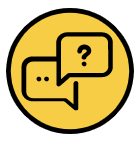27
Good scholarship protects us from misinformation (wrong information), disinformation (intentionally deceptive information), and dismediation (intentionally deceptive efforts to discredit reliable channels of information). Wrong and deceptive information is rampant on public forums and on poor quality media platforms. You should not rely on such sources for factual claims (unless you are a pro who can independently verify the information you get from them – and even then, you will need to explain why you are using such sources instead of scholarly ones).
The institutions that support scholarship, such as granting agencies, peer-reviewed journals, libraries, and so on, rely on gatekeepers to keep bad information out and allow good information in. Of course, no such system is foolproof, so we need to maintain our own critical abilities. The scholarly system, when it works well, polices itself. If a work of misinformation or disinformation gets published, distributed, and archived, we count on other scholars to identify it and demand a retraction or correction.
Discernment
As readers, we bring critical thinking to our research. Gullibility, or trusting too easily, is a problem because it means we are more likely to accept misinformation, disinformation, or dismediation. But we can go too far in the other direction and end up in cynicism – not trusting at all – which leads us to reject reliable sources. For instance, the internet has enormous amounts of information that is true and useful. Refusing to accept it because it’s on the internet is as problematic as accepting everything that’s on the internet. Our struggle is to practice discernment: when to trust and when not to trust. Discernment requires care and effort.
Our blind spots – gaps in our knowledge – present obstacles to discernment. These gaps make us vulnerable to the Dunning-Kruger effect: “people suffering the most among their peers from ignorance or incompetence fail to recognize just how much they suffer from it.”[1] Researchers need to catch their own assumptions by seeing what others are saying about a source, identifying the unknowns: “gaps in knowledge may go unrecognized in everyday life because people fail to have outside agents hovering over them” (254).
Click on the following link for a tutorial on SIFT (Stop, Investigate, Find, Trace) from Wayne State University, which helps you overcome your blind spots and distinguish good sources from problematic sources.
Aristotle’s Ethos
Aristotle’s term ethos evaluates expertise in these terms. Ethos has an ethical dimension and is separate from self-confidence or popularity since it is possible to be self-confident and popular without any ethical grounding. We can get a sense of whether an authority is ethical by investigating how others have evaluated their work. Over time, scholars get a reputation from other scholars who evaluate their knowledge, trustworthiness, and disinterestedness.
Aristotle was suspicious of people who argued for money. Cynically promoting views you don’t agree with in order to profit personally constitutes a form of malpractice. Honest self-advocacy is fine, however. For instance, disabled scholars who advocate for better transportation for people with disabilities do not present ethical problems with their advocacy.
A Note about Bias
We routinely hear that “bias” is bad; therefore, the reasoning goes, if we find a work of scholarship that shows “bias,” we should reject it. But itself is not a problem; unwarranted bias is. If there is a debate about whether the moon is made of cheese or rock, we might hear that both sides of the debate are biased. But the bias of one side is warranted and the bias of the other side is not. As scholars, we are called upon to act as referees, and it is up to us to take sides when necessary. In this example, claiming that both sides are right, or that the truth is in the middle (half cheese/half rock), is a dereliction of our duty as scholars. It is warranted to be biased against the bad behavior or false claims of scholars, but it is not warranted to be biased against good evidence and arguments nor to be biased against scholars based on their race, gender, or other identity categories. If we notice unwarranted bias in the work of other scholars, we have an obligation to point it out in our work.
Key Takeaways
| Do | Don’t |
| Understand what constitutes useful information in your discipline and for your project | Ignore criteria for what constitutes useful information in your discipline and for your project |
| Use ACRL standards to determine the credibility of journals in your field | Use materials from journals without a clear understanding of their credibility within your field |
| Ask whether bias in your source material is warranted or unwarranted | Reject sources out of hand because they exhibit bias – first ask whether the bias is unwarranted |
| Point out unwarranted bias in the scholarly work we find | Repeat unwarranted bias without comment |
| Additional research to determine whether your source contains disinformation, misinformation, or dismediation | Repeat disinformation, misinformation, or dismediation without comment |
| Understand the system of gatekeeping within your discipline | Ignore the system of gatekeeping within your discipline |
Exercises
- Why do we need gatekeepers in our disciplines?
- What efforts should you make to ensure source credibility?
- What are the differences between warranted and unwarranted bias?
- How significant are the problems of disinformation, misinformation, and dismediation?
- What was the most important lesson you learned from this module? What point was confusing or difficult to understand?
Write your answers in a webcourse discussion page.
 Go to the discussion area and find the Evaluating Scholarly Resources Discussion. Participate in the discussion.
Go to the discussion area and find the Evaluating Scholarly Resources Discussion. Participate in the discussion.
Evaluation will be a recurring theme in a later chapter when we move into refining and evaluating your research question.
- James M. Olson, Mark P. Zanna. Advances in Experimental Social Psychology. Netherlands, Elsevier Science, 2011, 251. ↵
